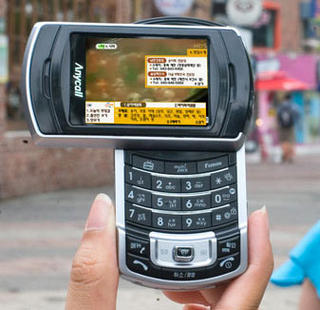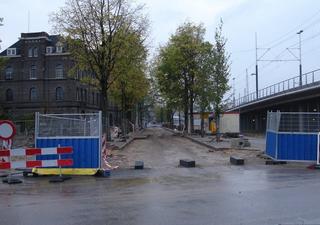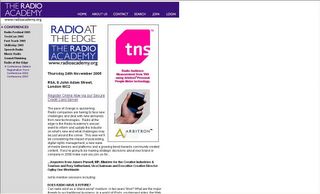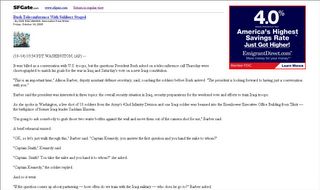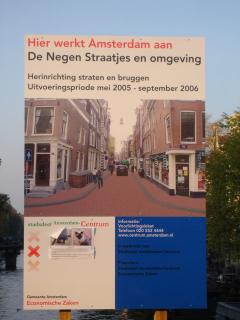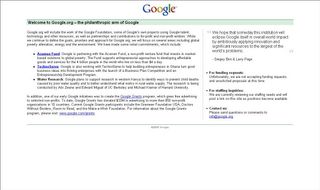
It's amazing how companies and corporations can put a spin on their own news. Today, BBC World Service announced a shift of resources, closing 10 language services in radio, scaling down its on-line presence in Hindi (English seems to be more popular for the BBC in India) and shifting Brazilian Portuguese output onto more relevant platforms - the web and partner stations.
But what's all this in the newspapers about the BBC launching a new Arabic language TV network. It is actually picking up where it left off on Sunday, April 21, 1996. I remember angry newspaper articles by people like Ian Richardson, who was charged with setting up the first BBC Arabic TV channel's news department, only to have to closed it down less than two years later. BBC WS Director Nigel Chapman did refer to this in today's speech.
This time, the BBC operation is to be funded from within its foreign-office allocation. The former BBC Arabic Television was launched by the corporation's commercial arm, "BBC Worldwide Television", and funded by the Saudi Arabian Mawarid Group. That partnership with Orbit TV was always going to be fragile, despite lengthy negotiations with the Saudis.
According to Richardson, "negotiations for this channel had gone on between the BBC and Mawarid's subsidiary, the Rome-based Orbit Communications Corporation, for several months from the latter part of 1993, finally being signed on March 24, 1994. There were elements of panic on both sides". BBC World Service Television, as it was then known, desperately needed a big new contract to cover itself financially in the wake of Rupert Murdoch's surprise purchase of Star-TV, from which he had unceremoniously dumped the BBC's signal to the Chinese mainland, Hong Kong and China.
World Service Television's Chief Executive, Chris Irwin, was convinced he had a cast iron guarantee of editorial independence from the Saudis. I think the Orbit TV guys were convinced the BBC was just a news source rather like Reuters...you paid your money and they delivered what you wanted.
During the short life of the first BBC Arabic Television, there were several angry "liaison meetings" with Orbit and the guarantees of editorial independence proved to be a sour joke, only barely obscured by a thin smokescreen about the BBC's alleged failure to observe "cultural sensitivities" - Saudi code for anything not to the Royal Family's liking.
When it became clear to Orbit and Mawarid that it had, in their terms, created a monster not prepared to toe the Saudi line, it was only a matter of time before there would be a final parting of the ways.
Political considerations were far more important that anything else. The Saudi's ensured that distribution in Saudi Arabia was through a microwave (MMDS) distribution system to set-top boxes. Often the BBC programmes were delayed by half an hour so give censors in Riyuadh time to pull entire programmes they didn't approve of. From their point of view, the BBC Orbit channel was theres - BBC was simply supplying raw material. They gave up on trying to tame the BBC and switched off the BBC Arabic TV channel at the close of the transmissions on the night of Saturday, April 20 1996. BBC was not advised in advance.
But Orbit also owned all the computer, editing and studio equipment at BBC TV Centre in White City used to make the Arabic TV programmes. That made it simple for them to mothball the whole project and stop the BBC restarting the project in 1996 with new backers.
The newspaper reports have suggested that BBC WS has bowed to Foreign Office pressure to set up Arabic TV again and shut services mainly to new EU member States and the Balkans. This is real government spin. In 1996, neither British commercial nor government interests were in favour of any independent BBC Arabic news channel. Foreign Office interests, especially in Saudi Arabia, were not improved by BBC reporters talking about the Saudi Royal family. I don't think much has changed in 9 years...so the BBC WS has to finance "BBC Arabic 2.0" from within its own budget. I am not sure it has cut WS radio deep enough to be able to compete with Al Jazeera and MBC to name just a few of the satellite channels already in that crowded market. 19 million pounds is not much to run a foreign TV news channel (doesn't BBC News 24 cost about 50?).
I presume that it will move from 12hrs a day at peak times to being 24 hrs a day within 6 months of starting up in 2007. With different time zones across the region, 12 hours isn't going to be handy. It would be ironic if BBC "resumed programming" in April 2007, after a 11 year transmission break. Actually, it probably will be around that time, since the UK financial years start on April 1st.
